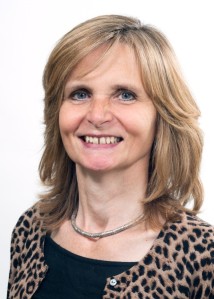Dear Editor and Jeremy Hunt,
‘Stillbirth and deaths in newborn babies are devastating for parents. Every thinking person wants pregnancies to end with a happy outcome. Having that ambition and doing evidence-informed things to address the issue are, however, two very different things. Jeremy Hunt (Jeremy Hunt aims to cut number of stillbirths and neonatal deaths, 13 Nov) is strong on rhetoric but weak on detail. Evidence that ‘digital equipment’ saves lives is limited, so let’s not kid ourselves and get caught up in a technology race. MBRRACE (Mothers and Babies: reducing risk through audit and confidential enquiries across the UK) shows there is wide variation between the performance of different maternity services (‘commissioning organisations’) across the UK. Those that need help show perinatal mortality rates up to 10%, or more than 10%, above the average. Clinical leadership from doctors and midwives; effective multi-disciplinary team working, including joint training; effective communication – both between staff and staff with service users; plus psycho-social support for women provided by continuity of midwifery care are all important, but not a quick fix. Look up the evidence (including the Cochrane review on ‘midwife-led-continuity-models’, by Sandall et al) and use it!’
Yours, etc
I’ve just submitted that letter. Here I explain why.
My blog site has been quiet all summer. I have had a cancer diagnosis and have been off my usual form and away from my laptop having chemo-radiation therapy. That’s a wholly different health story. It takes a long while to get back to full energy and I’m not there yet. But I’m enjoying taking life at a more leisurely pace. Next week, I have my three-month follow-up CT and MRI scans and the meeting with my oncologist.
I could step back and leave user representation on maternity services to the many other, younger, maternity advocates and parent leaders out there. I know there are women of all ages influencing maternity services for the better across the UK, week-in and week-out, as I have a large network of contacts, partly through ‘MSLC leaders’ on Facebook, partly through 27 years of employment at NCT, through my social media work, and as a result of two of my sons’ partners being pregnant this year, and my friends’ children also becoming parents, for the first time or subsequently. But, I know that many people don’t speak up because they are not sure how best to express what they feel; they fear ‘going public’, making a mistake, or being ridiculed. For those who have a young family, a job, busy lives… there just isn’t time.
And very few feel confident to challenge or join in the debate using high-quality evidence. It’s difficult to keep up to date, to interpret findings and conclusions, to know when the methodology is reliable, to put it all together and makes sense of the whole, etc, etc. So many service users, women especially (?), stay mum.
That’s why I’ve sent a letter today. Because I can and others who might, won’t.
There’s lots more that could be said. I’m attending the MBRRACE conference at RCOG on Thursday in London, the focus of which is ‘Perinatal Confidential Enquiry into: Term, singleton, normally-formed, antepartum stillbirth’. In fact its the ‘report launch meeting’. One of the sessions is on ‘Diagnosis and intrapartum care’ , though I note there is nothing on prevention. There are sessions on ‘Communication issues’ and ‘Lessons to be learned and key recommendations from the 2015 Perinatal Confidential Enquiry’. Maybe I will write more later.
Very sadly, this month the pregnancy of Leigh and my son Robin was one of those with a sad ending. In Australia, pregnancies that end after 20 weeks are counted as a stillbirth, even if they end just hours or days after that time, unlike in the UK where the threshold is 24 completed weeks of pregnancy. Leigh and Rob were caught up in that, needing to register a stillbirth. So, I dedicate this blog to them, their love and their courage, and to little Jesse James who didn’t make it to enjoy the Sydney sunshine or grow up in our family.

Oh Mary so much going on in your life. I hope your cancer treatment will work for you and I am very sorry to hear about your son’s and partners loss and yes yours too. Thank you so much for writing this letter. It so isn’t about the machines. There is great complexity and no quick fixes. Continuity sometimes prevents a death but if it doesn’t it will offer personalised support to parents who lost a baby.Sending lots of Love Elke Independent Midwife who has proved continuity of carer for over 15 years
LikeLiked by 1 person
Thank you Elke. It’s so good of you to take the time to respond. I agree with your important point about support during loss. Mary
LikeLike
Dear Mary,
I am so sorry for the loss of your tiny grandson. My heart goes out to you and your family.
I really want to thank you for remaining at your post despite your recent illness. Yours is one of the strong and respected voices in our field and we need you every bit as much as we have always done.
I will be thinking of you as you continue your recovery.
With love,
Alex (NCT from Wales)
LikeLike
Thank you, Alex. How lovely to hear from you. Your kind thoughts are much appreciated. Mary
LikeLike
I am so sorry to hear all of this Mary and wish good health to you all. You are of course absolutely right, while we all love a machine that goes ping; answers are much more complex and can’t be reduced to a sound bite.
LikeLike
Thanks, Susy. Sorry not to acknowledge before now. Hope to see you one of these days. Mary
LikeLike